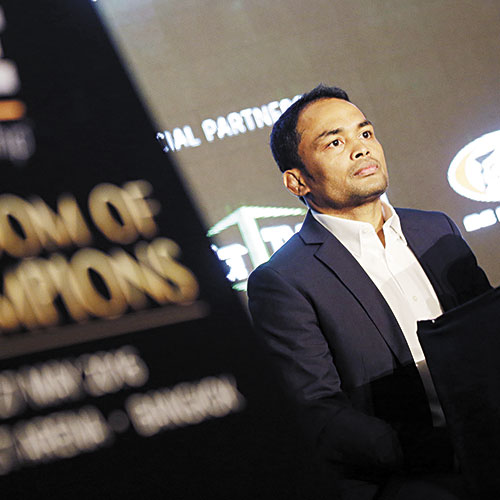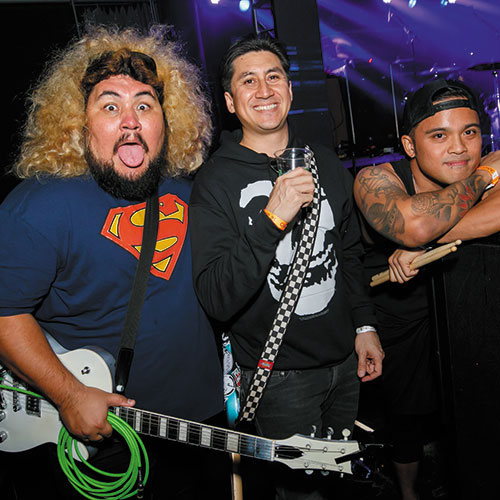MMA comes to heartland of Thai kickboxing

By CHRIS LINES | AP Sports Writer
BANGKOK (AP) — Of all the various fighting styles that combine to create the burgeoning sport of Mixed Martial Arts, it is Thai kickboxing that forms the core of the new discipline. Yet it has taken until this week for Thailand to host its first major MMA event.
Initially, there was concern and resistance among the guardians of Thai kickboxing — or Muay Thai as it is known locally — who feared the culturally important martial art would be subsumed by the brash newcomer, draining away fan interest and fighters.
Partly, also, the delay was because of the lack of a promotable local hero in MMA ranks, and partly because of the difficulty many outside companies face in navigating the regulatory and commercial landscape of Thailand in order to stage an event.
It took a serendipitous meeting between two childhood friends late last year to provide the key to unlocking these problems.
When Chatri Sidyodtong, founder of Asia’s principal MMA promotional company One Championship, met up with entertainment entrepreneur Kamol “Sukie” Sukosol, the first outlines were drawn for an event that will come to fruition this Friday: the ‘Kingdom of Champions’ event in Bangkok.
As Thais, they knew how to unlock the regulatory and commercial backing to make an MMA event work here, and had the complementary expertise in sports and entertainment.
The lingering concerns of the traditional Muay Thai aficionados should be ameliorated both by Chatri’s long and respected history in Muay Thai, and the presence of former Muay Thai champion Dejdamrong Amnuaysirichoke in the main event, a straw-weight fight against Japan’s Yoshitake Naito.
Chatri began Muay Thai as a child under the famed tutor Yodtong Senanan — Chatri took his ring name and now surname from his trainer — and has a reverence for the sport that precludes any desire to eclipse it. Instead, he sees a symbiotic relationship between Muay Thai and MMA.
“I’ve been a Muay Thai practitioner for 30 years, as a student, fighter, teacher and coach. I love Muay Thai, it will always be my first love,” Chatri told The Associated Press.
“In Thailand, historically, the practitioners of Muay Thai have been the lower class, it hasn’t really hit the middle class and upper class, but One Championship is going to give a big boost in popularity from the middle and upper class to support the sport. Even though Muay Thai is a national treasure, who really practices it? I want to make it mainstream.”
Thailand is one of the last regional frontiers for One Championship, which has staged events in most parts of Asia and has established itself as the dominant regional player in MMA.
The ambitions for the company are high, reckoning on the martial arts heritage of Asia, the development of local heroes and the possibilities of a sports media market, which is heavily reliant on foreign products.
“Asia is the home of martial arts for the last 5,000 years,” Chatri said. “Bruce Lee, Jet Li and Jackie Chan are movie heroes who are billion dollar products themselves, but nobody has ever tried to present the beauty of true martial arts to the mainstream in a commercial manner on a pan-Asian basis.
“There are 4.1 billion people in Asia. It’s the largest media market in the world, so there is no reason why One Championship cannot be the largest media property in Asia by far.”
UFC is the powerful promotional group for MMA in North America, and moved to the verge of Asia with an event in Australia last year. Chatri believes UFC and One can co-exist without infringing too much on each other’s territory.
“UFC has a 90 percent market share in North America, we have a 90 percent share in Asia,” Chatri said. “It’s Apple vs. Samsung, GM vs. Toyota, Amazon vs. Alibaba, it’s no different. Do I believe that UFC is going to succeed in Asia, yeah I believe so. But do I think they can take our spot? No.”
For all the business sense behind the company’s expansion, the trip to Thailand is an emotional homecoming for Chatri, who is of mixed Thai and Japanese heritage.
His family lost its money in the Asian currency crisis of 1997, and his father left the family. Chatri, after studying in the U.S., worked his way up through the financial world, running a hedge fund before deciding to channel his energies into martial arts.
“My family got thrust into poverty, and I didn’t know if I was ever going to come back to Thailand,” Chatri said. “I left Thailand on a very down note, but I’ve always kept Thailand in my heart. I am very emotional about this particular event because I’m coming back home.
“I do feel a sense that I was somehow maybe destined for this.”











